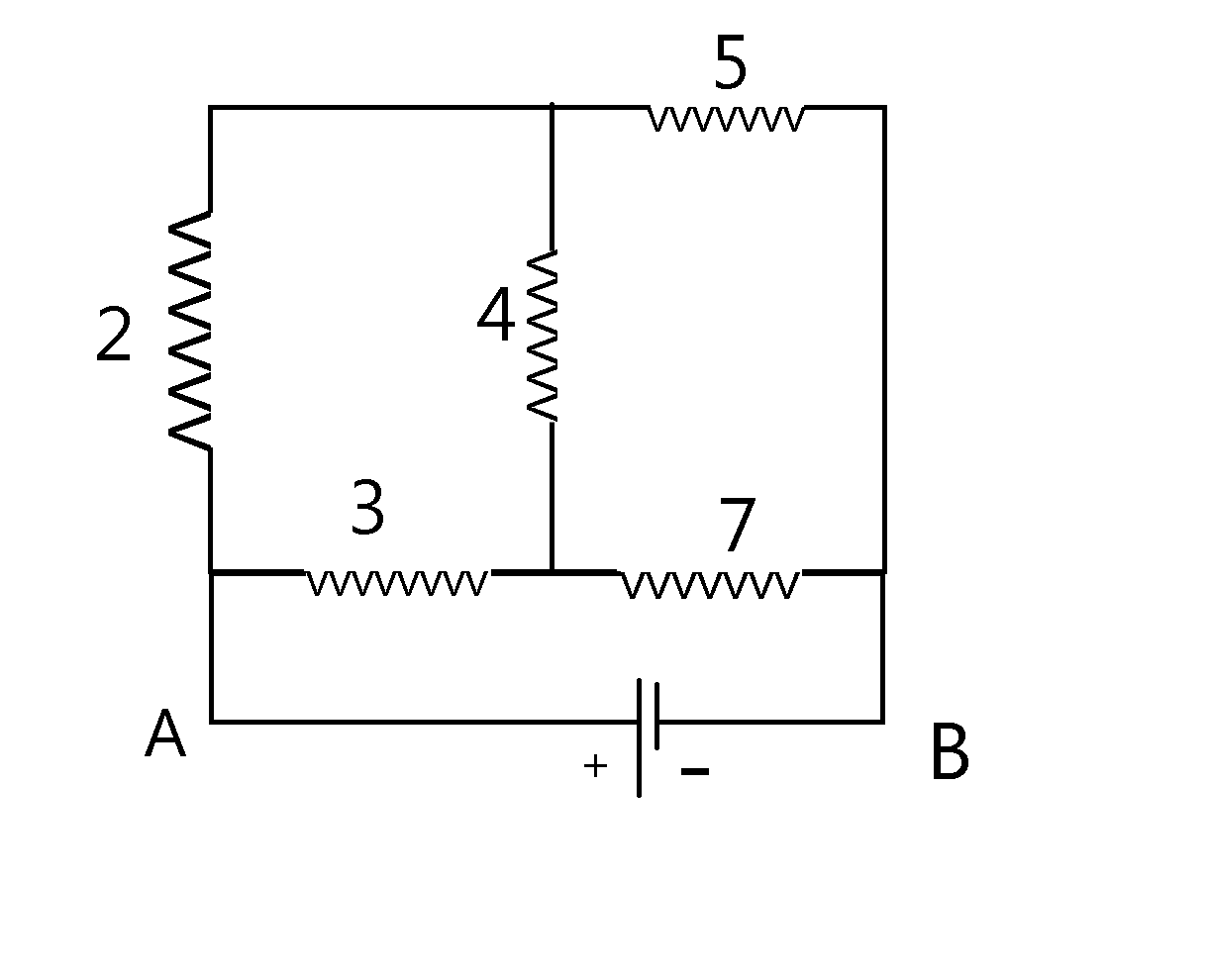How to find resistance ?

What is is the equivalent resistance between and ? The numbers are in unit .
Give the full solution .
No vote yet
1 vote

What is is the equivalent resistance between and ? The numbers are in unit .
Give the full solution .
Easy Math Editor
This discussion board is a place to discuss our Daily Challenges and the math and science related to those challenges. Explanations are more than just a solution — they should explain the steps and thinking strategies that you used to obtain the solution. Comments should further the discussion of math and science.
When posting on Brilliant:
*italics*or_italics_**bold**or__bold__paragraph 1
paragraph 2
[example link](https://brilliant.org)> This is a quote# I indented these lines # 4 spaces, and now they show # up as a code block. print "hello world"\(...\)or\[...\]to ensure proper formatting.2 \times 32^{34}a_{i-1}\frac{2}{3}\sqrt{2}\sum_{i=1}^3\sin \theta\boxed{123}Comments
http://www.electronics-tutorials.ws/dccircuits/dcp_10.html on this link the theory that is to be used is given.. using it, consider the loop containing resistances 2,3,4 ohms..call it loop1. it is a delta network which can be converted to an equivalent star network with resistances 8/9, 6/9 and 12/9. now the circuit is simplified to a series connection of 6/9 ohm resistor, to a parallel connection of (8/9,5 in series) and (12/9, 7 in series). now that is easy to calculate and the answer comeas out to be 4.1171875 exactly.
Whenever we have to find resistance of a circuit, mark each joint with a letter, then combine those letters in such a way that it becomes easier to solve, such diagrams are called equivelant diagrams. After you make an equivelant circuit for the above, you get the type of the question. In this case it is unbalanced wheat stone bridge, and then you calculate
1.55 ohm
4.117647059